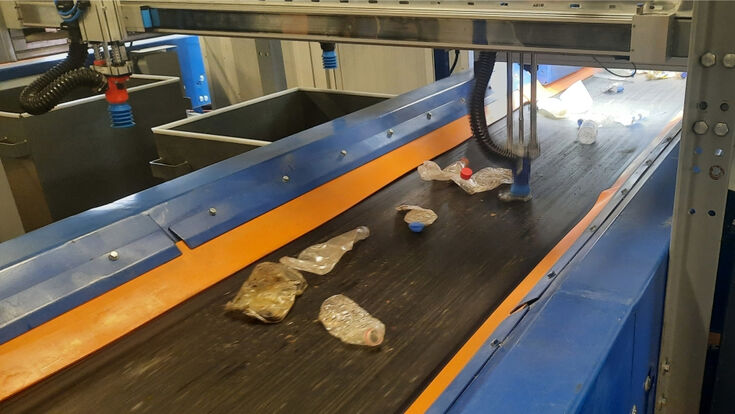Reclaim Waste Melbourne: Leading Solutions for Comprehensive Liquid Waste Removal
Reclaim Waste Melbourne: Leading Solutions for Comprehensive Liquid Waste Removal
Blog Article
The Crucial Function of Appropriate Liquid Waste Removal Methods in Waste Administration
In the realm of waste administration, the value of utilizing suitable fluid waste removal approaches can not be overstated. It is within this structure that the implementation of audio liquid waste elimination strategies stands as a foundation of liable waste administration techniques.
Significance of Correct Liquid Waste Elimination
Why is appropriate fluid waste elimination crucial in maintaining environmental and public health and wellness requirements? Correct fluid waste removal is vital for securing the setting and promoting public wellness criteria.
Ecological Advantages of Reliable Techniques
Implementing efficient liquid waste removal methods not only safeguards the environment yet likewise plays an important role in keeping public health and wellness requirements. Improper disposal of fluid waste can lead to pollutants permeating into the soil and at some point reaching groundwater reservoirs, affecting both human health and communities.
Furthermore, reliable liquid waste removal methods help alleviate the threat of waterborne diseases. Harmful chemicals in liquid waste can have destructive results on freshwater and marine microorganisms, disrupting communities and biodiversity.
Health And Wellness Effects of Inadequate Elimination
The harmful health and wellness effects associated with insufficient liquid waste removal emphasize the critical significance of appropriate disposal techniques and effective administration techniques. Inappropriate removal of liquid waste can result in the contamination of water sources, posing serious health and wellness threats to both human beings and wildlife. When liquid waste including damaging chemicals, microorganisms, or various other contaminants is not effectively gotten rid of and dealt with, it can permeate right into groundwater, rivers, and seas, jeopardizing the high quality of drinking water and aquatic ecosystems.
Exposure to contaminated water due to poor fluid waste elimination can cause numerous illness, including gastrointestinal illnesses, skin infections, respiratory system concerns, and also much more severe problems such as body organ damage or neurological problems. In addition, the release of neglected fluid waste right into the setting can add to the spread of waterborne diseases, developing public health and wellness crises that require significant sources to deal with.
Therefore, applying appropriate fluid waste elimination techniques is crucial to protecting public wellness and protecting the integrity of communities. Reclaim Waste liquid waste removal. By focusing on effective waste monitoring methods, we can minimize the health and wellness threats connected with poor fluid waste removal and promote a much healthier atmosphere for all
Duty in Protecting Against Water Contamination
Efficient liquid waste elimination techniques play an essential duty in stopping water contamination and protecting public wellness. Incorrect disposal of liquid waste, such as without treatment sewage or commercial effluents, can result in the contamination of water sources, presenting major threats to human health and wellness and the atmosphere. When fluid waste is not adequately eliminated and dealt with, dangerous substances can permeate into groundwater, rivers, and oceans, infecting drinking water supplies and aquatic environments.
Polluted water can bring a series of contaminants, including microorganisms, hefty steels, and chemicals, that have the prospective to Reclaim Waste Melbourne trigger waterborne conditions, environmental damage, and lasting health and wellness effects in people and wild animals. Proper liquid waste elimination strategies, such as wastewater treatment plants, septic systems, and commercial effluent therapy facilities, are necessary for removing or reducing the effects of harmful contaminants before they can go into water bodies.
Guaranteeing Safe Disposal Practices
Guaranteeing proper disposal practices for liquid waste is vital to secure water sources and public health from contamination threats. Correct control and storage of fluid waste are crucial to protect against leakages or spills that might leak right into the soil and contaminate groundwater resources.

Conclusion
To conclude, appropriate liquid waste removal strategies play a critical role in waste administration by avoiding environmental contamination and safeguarding public wellness. Effective elimination techniques guarantee the secure disposal of fluid waste, lessening the negative impact on ecological communities and water resources. It is necessary for sectors and people to take on accountable practices to minimize the dangerous effects of incorrect fluid waste disposal.
In the realm of waste management, the value of utilizing appropriate fluid waste removal approaches can not be overstated. It is within this framework that the execution of sound fluid waste removal methods stands as a keystone of accountable waste management methods.

Report this page